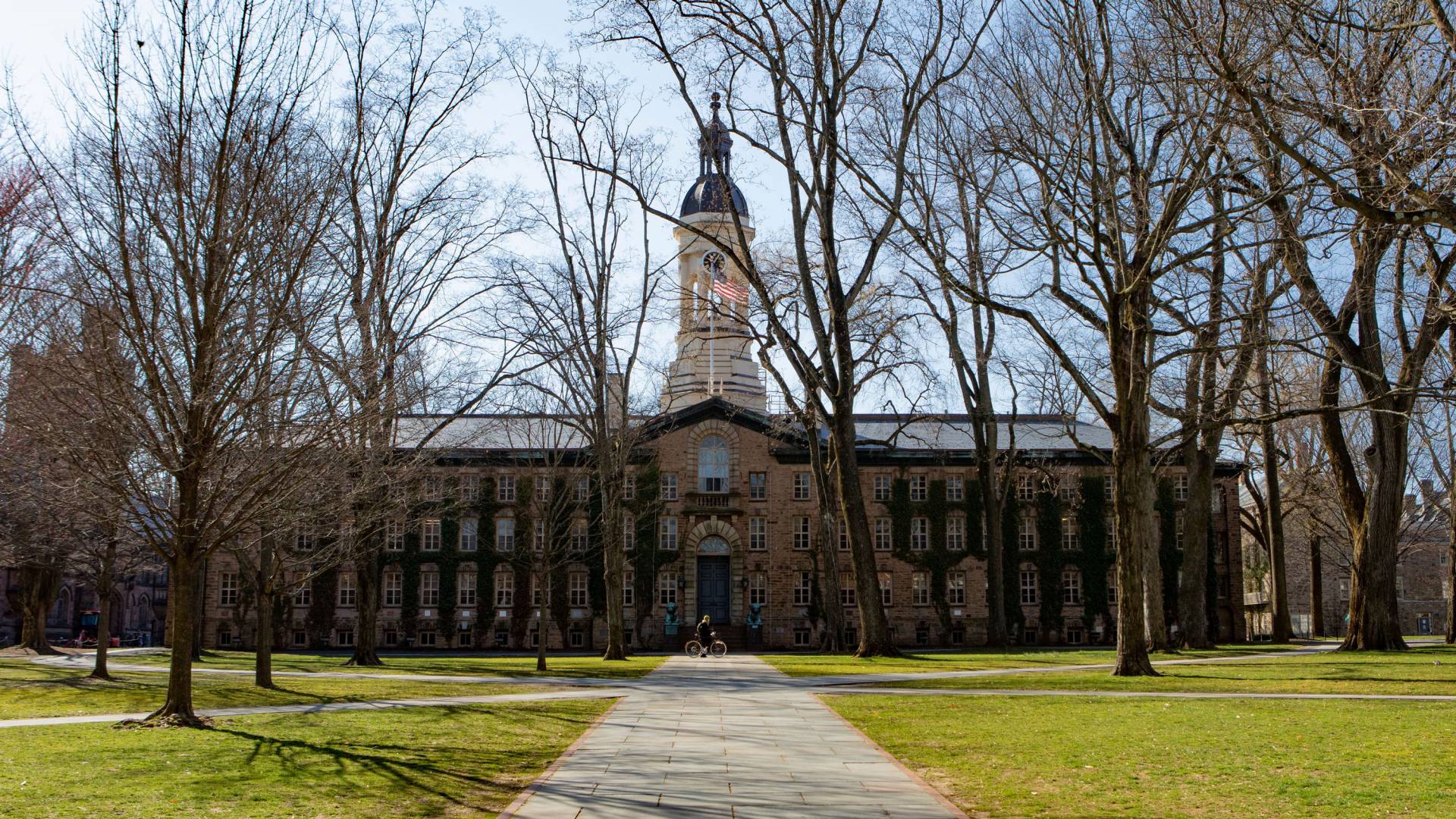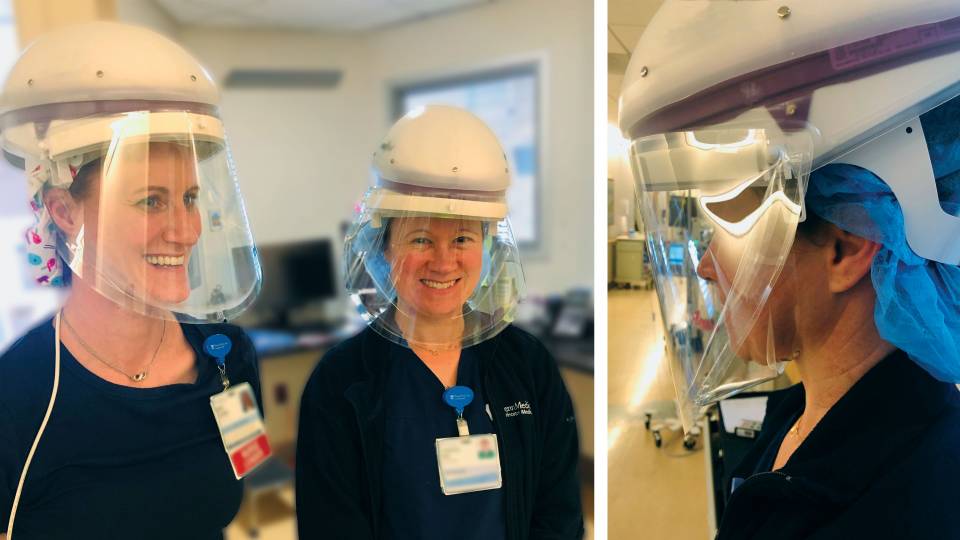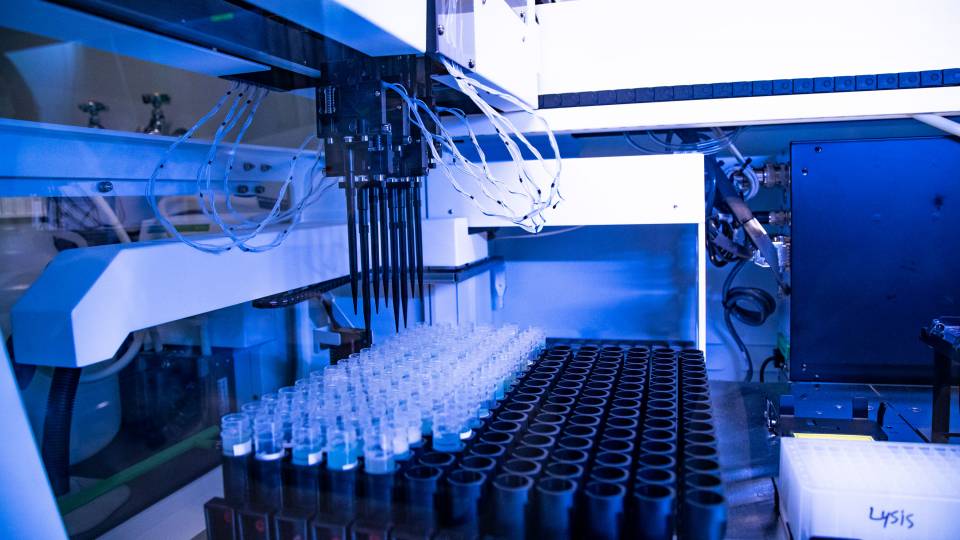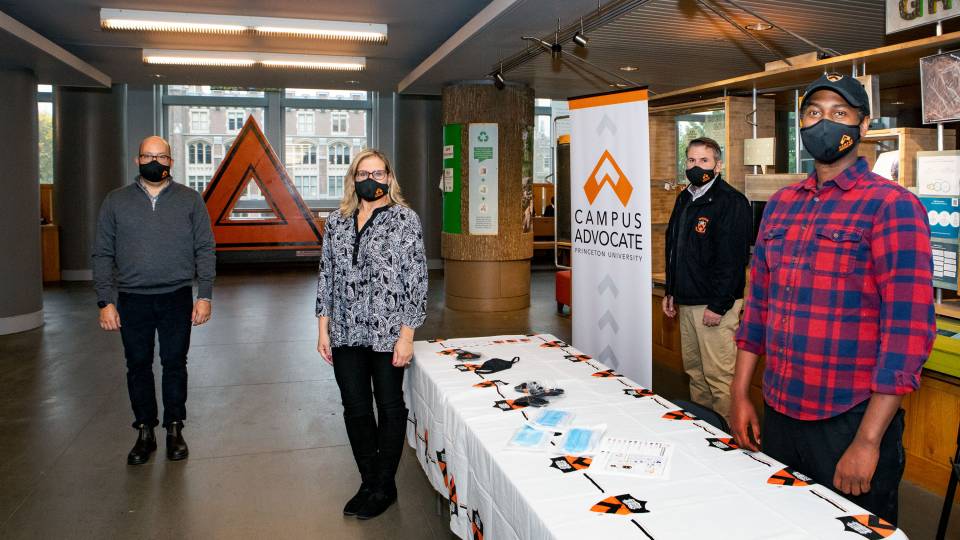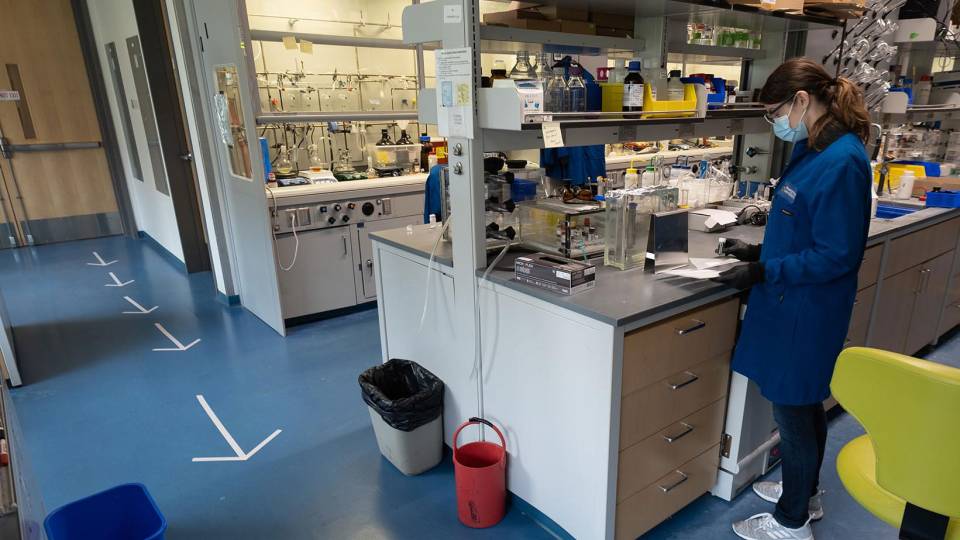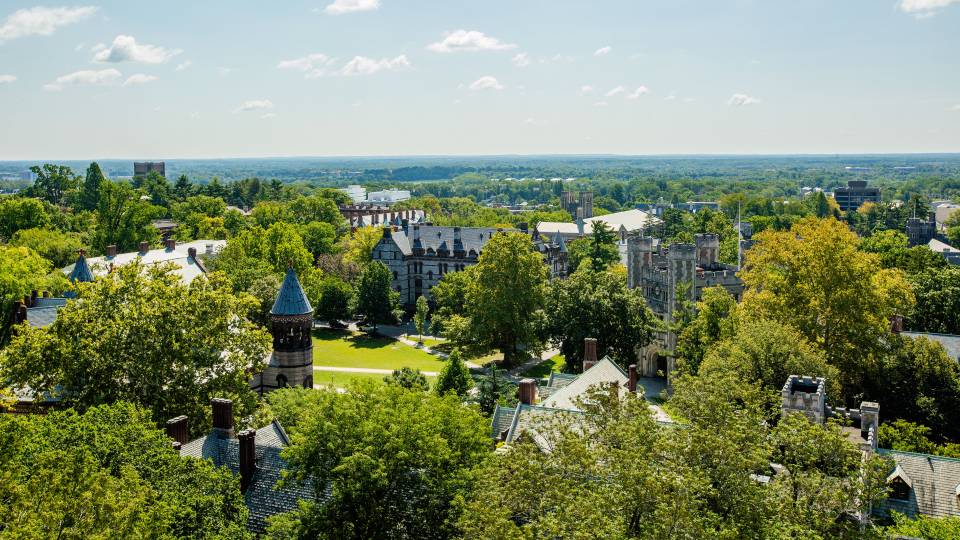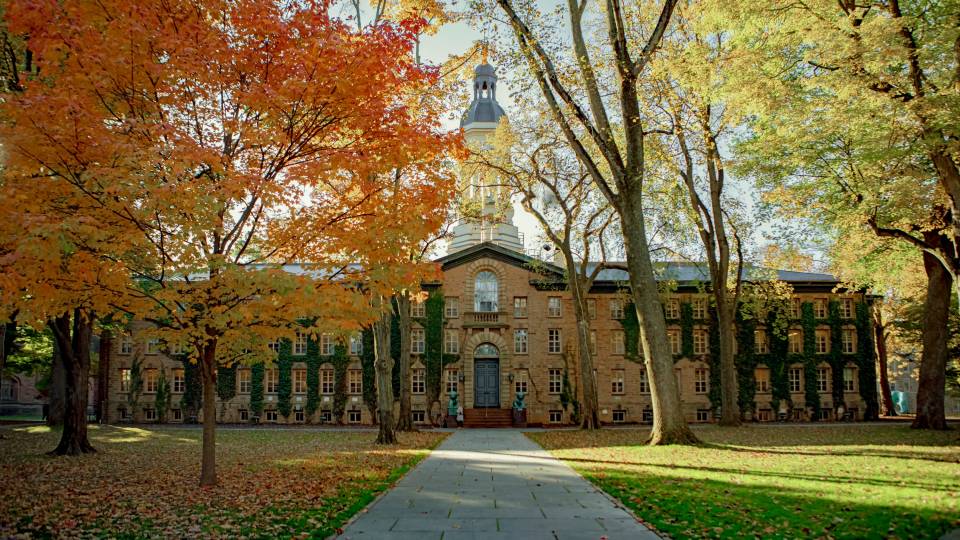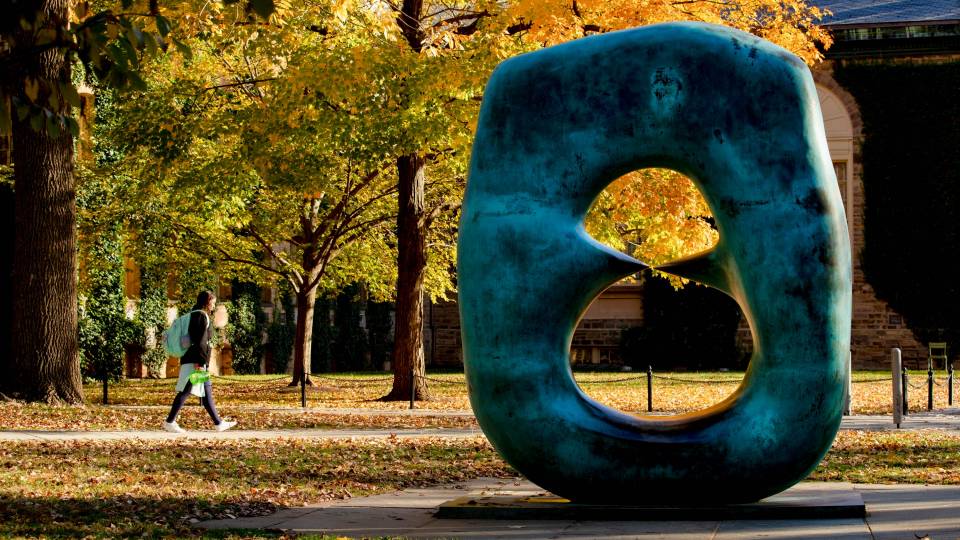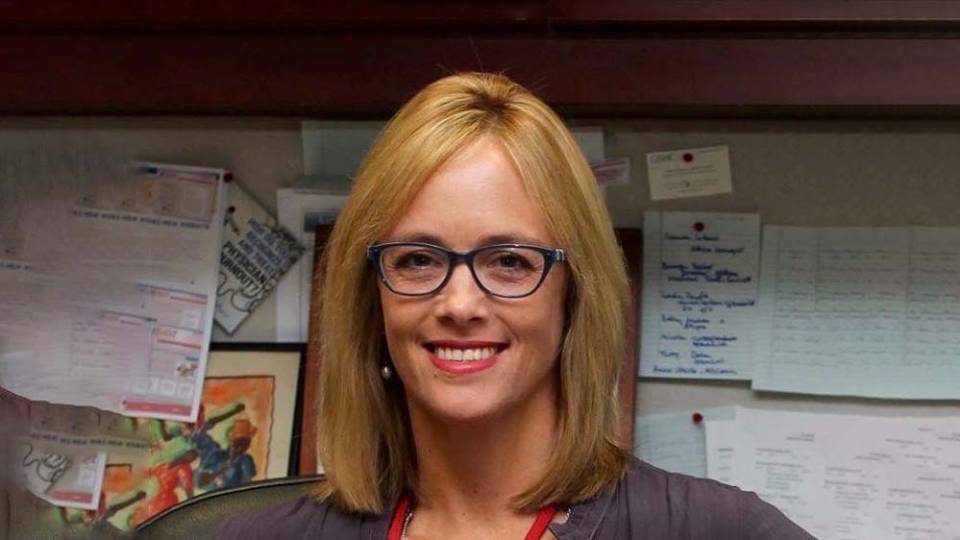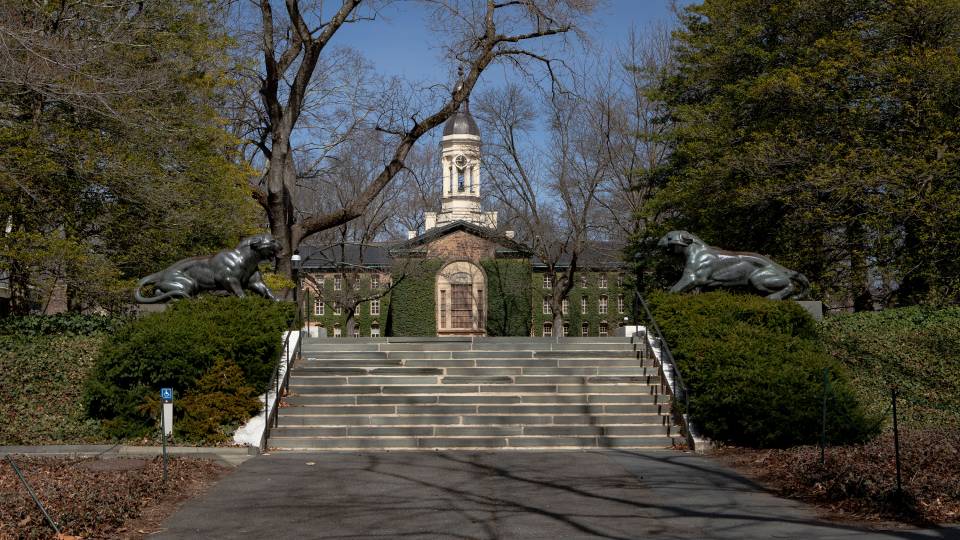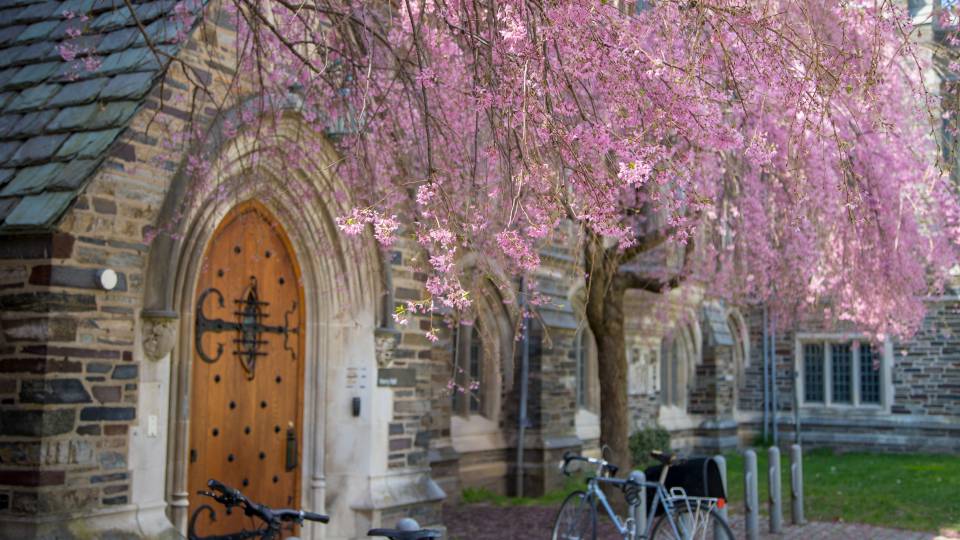Nassau Hall
In a message to the University community, President Eisgruber writes that safety depends on vigilant compliance with public health guidance; most instruction will remain online
Dear Princetonians,
I write with an update about Princeton’s spring semester. During the fall term, we cultivated strong public health norms and practices on the Princeton campus; monitored and learned from experiences with the virus at Princeton and elsewhere; and established an on-campus testing laboratory. In light of that work, we have concluded that, if we test the campus population regularly, and if everyone on campus rigorously adheres to public health guidance about masking, social distancing and other practices, we can welcome a far greater number of students back to Princeton.
We will accordingly invite all enrolled undergraduate students to campus for the spring semester. We will also, however, continue to support remote learning for anyone who chooses it. This invitation is in addition to the existing accommodations for our graduate students, many of whom we were able to welcome back to campus in the fall.
As our undergraduates consider whether to opt for a residential or a remote experience this spring, we encourage them to think carefully about the special responsibilities and conditions associated with participating in our residential community while the pandemic continues.
COVID-19 infection rates in the United States, and in New Jersey, are high and rising at the moment. At the same time, we know more today than we did over the summer about what actions we can take individually and collectively to keep our community as secure as possible. The safety of our campus, and the communities around it, will depend on vigilant compliance with public health guidance.
Protecting our individual and collective well-being will require the commitment and cooperation of everyone who elects to come to campus in the spring. We want to make sure that all of our students appreciate the challenges associated with residential life during a pandemic. A choice to return to campus is a choice to accept limitations and take on new responsibilities. For example:
- Most instruction will remain online even for those undergraduates who reside on or proximate to campus. Classes with an in-person component will be offered in “hybrid” format, meaning that every class will be available in an online format to students studying at Princeton or remotely.
- Masking and social distancing requirements will apply throughout campus.
- All undergraduate students residing on campus or in the Princeton area will be required to participate in the University’s coronavirus testing program and to comply strictly with all instructions related to contact tracing, quarantine and isolation.
- Parties and most other social gatherings will be prohibited.
- Undergraduate students will be prohibited from hosting visitors and will be restricted from traveling.
- All returning undergraduates, including those from New Jersey, will be required to quarantine upon arrival to campus.
- To reduce the risk of spread within dormitories, we will house students on a one-to-a-bedroom basis. Depending on demand, some students may be housed proximate to campus rather than on it.
- We may have to “lock down” all or part of the campus for extended periods because of high infection rates at the University or in the surrounding community.
We expect that restrictions will have to be especially tight as we begin the term in February, when we anticipate that infection rates in the country and in New Jersey will remain high and when the weather will limit outdoor interactions. We hope, but cannot guarantee, that there will be opportunities to increase interaction, and to phase in more activities, as the term progresses.
We know that undergraduates and their families will have many questions. Some answers can be found on our Spring 2021 website. In addition, Dean Jill Dolan and Vice President Rochelle Calhoun will be sending out additional information later today and hosting online town halls next week to answer your questions directly.
Though we now believe that our preparatory planning, policies and testing capacity will enable us to mitigate the risk of the pandemic appropriately, we recognize that the situation around us may get worse. We will continue to monitor developments related to the pandemic, including public health guidance and state regulations. We will be in touch if they require any changes to our plans.
This pandemic has already exacted a heavy toll on our society, including on many Princeton families. Before closing, I want to express my sympathy to all of you who have lost friends or family members to this disease, who are struggling with it yourselves or who know others who are doing so.
I want to express once again my gratitude to all the Princetonians — students and their families, faculty, staff and alumni — who have collaborated to address the special challenges of this year. Many people at this University have worked hard both to support online instruction and to give students the option of a semester in residence. I recognize that, even with this herculean effort, our students are confronting a very imperfect choice between remote learning and a highly constrained on-campus experience.
All of us look forward to a time, perhaps as soon as next fall, when vaccines again make it possible to offer a fuller version of Princeton’s residential education. In the meantime, we encourage students and their families to consider carefully which option for the coming semester is best for them; we will support our students however they choose to continue their studies.
With best wishes for a happy, and safe, Thanksgiving,
Christopher L. Eisgruber
